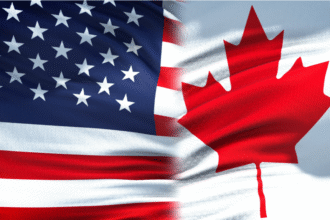Shock waves rippled across Canada on Monday after Prime Minister Justin Trudeau announced his resignation. After nearly a decade in the job, Trudeau’s resignation is a watershed moment not just for the Liberal Party, but for Canada’s political prospects.
This blog will walk through the reasons behind his decision, the obstacles, and what this all means for professionals, students, and entrepreneurs looking to chart their way in the changing times.
What caused Justin Trudeau to resign?
At 53, Trudeau said he will step aside as prime minister and leader of the Liberal Party once someone else takes over. The move is the latest in a series of political setbacks for Mr Obama, including falling public approval ratings and internal party struggles.
Key Factors Leading to His Resignation:
- Economic Discontent: The criticism grew loud enough for Trudeau to fail to address rising living costs and economic inequality.
- Policy Regrets: He would regret not reforming Canada’s electoral system to enable a more inclusive governance.
Internal Struggles: Pressure mounted internally after allies quit, including former Deputy Prime Minister Chrystia Freeland.
The Legacy of Justin Trudeau
When Trudeau came to power in 2015 it was to promise “sunny ways” and progressive transformation. Over the years, he championed:
- Climate Action: Is taking policies to curb climate change and environmental sustainability.
- Indigenous Rights: The talk examined historical injustices done to Indigenous communities.
- Global Leadership: A progressive force in representing Canada on the world stage.
But in later years, his leadership was criticized, exercised as being discontent with the economy and not able to handle the domestic and international crises.
The Path Forward: What Happens Next?
Canada’s Liberal Party is left with the task of choosing a new leader, hoping to regain trust and prepare for a general election now on the horizon.
Potential Successors
- Mark Carney: Ex-Bank of Canada and Bank of England governor.
- Mélanie Joly: Strongly positioned internationally and currently foreign minister.
- Chrystia Freeland: Former deputy prime minister, famed for her fiscal authority.
- It now is — and will be this October — largely up to which party has proven most able to refresh its vision and tackle voter concerns.
Canada's New Leadership faces challenges
- Economic Recovery: They will need, above all, to address inflation, unemployment and the cost of living.
- Climate Commitments: Overcoming global challenges to stay on track on climate change.
- Global Relations: Keeping in view trade tensions and partnerships with the US.
Action-Oriented Takeaways
- Stay Informed: Stay regularly updated on Canadian political developments.
- Engage in Dialogue: Have input on Canada’s future direction.
- Adapt to Change: Get ready for swings in policies that could alter your livelihood, scholarly career or smaller business.
Justin Trudeau’s resignation is a ‘defining moment’ for Canada. With new leadership on the way for the nation, this means a new direction and a chance to reflect on past accomplishments and where we can put our efforts next.








